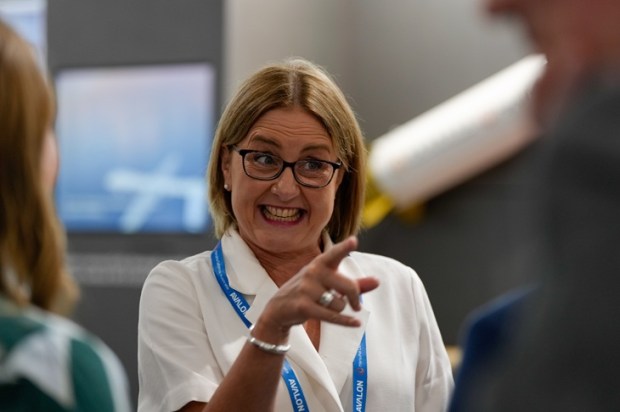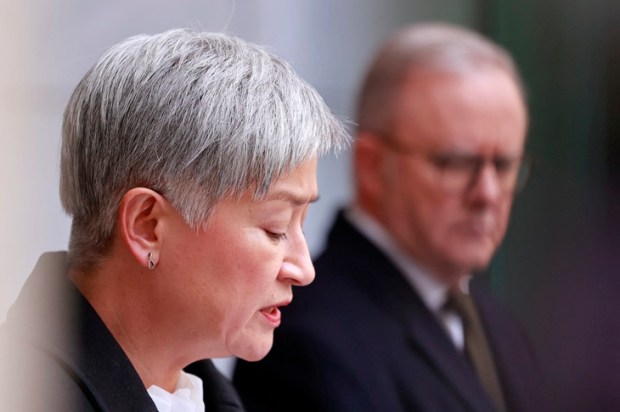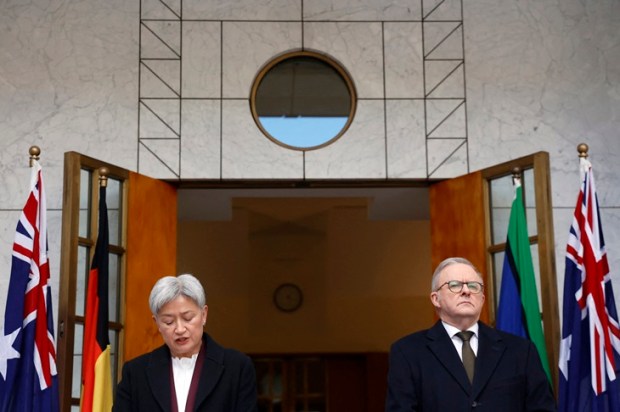On December 6, 2023, Victoria became known as an apartheid state.
It could not have been said before.
It would never, ever, have crossed the minds of Victorians that their government might not only applaud it, but enable it, fund it, and chaperone it into position.
For it was on December 6 that the man who negotiated the three Recognition and Settlement Agreements (RSAs) in Victoria told a meeting in a country town that such agreements – including treaty – are necessary because Indigenous people are ‘different’.
‘Because they are different’ is the phrase calmly, openly, and shamelessly spoken by the government official from the Department of Premier and Cabinet Victoria. He had asked to attend the Wednesday night meeting in Ararat to answer questions.
The RSAs are a first in Australia. They usurp, and exceed, Native Title agreements. They were born to outdo the machinery around Native Title.
The meeting was convened by a group of concerned citizens to guide locals through the latest RSA called Barengi Gadjin (2022) covering a region half the size of Tasmania. Most people still don’t know the document exists – least of all understand what is in it and the implications for the state.
During the meeting, the official was asked why the RSAs and treaty were needed given the Voice referendum had clearly identified that treaty and separatism are not wanted – even in the socialist southern state. Indeed, the Ararat region voted nearly 70 per cent ‘No’ to the Voice. Its neighbouring federal electorate voted nearly 80 per cent ‘No’.
The Victorian Liberals and Nationals are slowly dawning on that realisation, despite heralding in all that was legislatively required to make treaty a reality. They also signed the first RSA in the state in 2013.
The words ‘because they are different’ shocked the room.
Until that moment, the attendees had lived believing that they were equals in Australia – equal before the law – equal in their one-person one-vote status. They were visibly shocked. They said as much to the visiting official. He was unfazed.
After a question-and-answer session – he was asked to leave the meeting so the locals could continue learning about the document without him – and without the Victorian government looking over their shoulders and assessing their views.
The unprecedented RSAs in Victoria are separatist documents: Us and Them documents. They speak nothing of unity. They speak nothing of ‘self-determination’.
The latest deal goes far beyond the two previous deals and may be a harbinger of things to come.
The Barengi Gadjin Land Council (BGLC) wants an ‘equal footing’ around Local Council tables. Such a move would halve the vote of the democratically elected representatives, and bring into question what would happen in the face of disputed council decisions. Who should ratepayers take to court should the influence of non-elected Indigenous shape contested outcomes? The local council? The land council? Or both?
Among their list of wants includes sole management of water and public land. They want more public land and private land. The state has already agreed to pay their GST, but they also want exemption from local rates, stamp duty and land tax, the latter just as the state has tripled it for others. They want to harvest timber despite the state shutting down the timber industry in Victoria. Timber harvesting for some, not for others.
The Agreement provides them preferential procurement contracts and employment with local councils.
It enables rights and opportunities to the Indigenous which may no longer be afforded others. The BGLC wants, for example, to rename all current roads and bridges and the right to name all future roads.
In this way, street by street, road by road, bridge by bridge, evidence of non-Indigenous culture and nation building, will be erased.
Given his lead role in creating the RSAs – the official was asked what function he would play in the formation of treaty in Victoria for which negotiations could start this year given the ‘independent’ Treaty Authority is now in place. By ‘independent’ one means all five members are Indigenous. They were selected by a similarly ‘independent’ panel, plus one former Andrews government Minister.
The visiting official said he would ‘lead the negotiations with his team’.
‘That is very interesting,’ came the reply, ‘because no one knows what treaty means – but we might have an insight, now, given we know your work from the RSAs.’
If so, Victorians need to be alert and alarmed.
But worse.
The cost to the state of the two previous RSAs – the Dja Dja Wurrung (2013) and the Taungurung (2018) – are largely known and worth tens of millions of dollars. But the cost to the Victorian taxpayer for the Barengi Gadjin deal is a mystery. The amounts have been redacted in the Agreement.
The government’s man was asked if he could share those figures with the meeting and, from contemporaneous notes, the following exchange ensued:
A: ‘No’ I can’t.
Q: Why can’t you tell us, the others are known?
A: Because they don’t want you to know.
Q: Who doesn’t want us to know, the government or the Land Council?
A: The Land Council.
Q: Why don’t they want us to know?
A: Because they don’t want the bad news stories.
Q: But it’s public money. It’s ratepayers’ money, taxpayers’ money. It’s government money. How can they be accountable when no one knows how much money is involved?
A: They asked us to redact the figures because of the bad news stories that were written.
Q: But the figures were redacted before it was in the media. There have been no stories about how much it is because no one knows. Your time frame is wrong: there were no bad media stories.’
Such a mystery funding agreement would confound the audit of Indigenous bodies being requested by Senator Jacinta Nampijinpa Price. Worse, such cryptic deals may cause avoidable resentment.
The official made other, unruffled, statements such as the Indigenous ‘own the land’ including, they believe, ‘all private land’.
As the lead negotiator for the nation’s unprecedented RSAs, and a serious player in Treaty negotiations to come, these words are instructive.
They show the Victorian government is institutionally blind to the reality that there is another side to the story: institutionally blind to millions of Victorians who don’t believe in separatism and institutionally blind to millions of Victorians who believe in equality and accountability.
The use of the word apartheid will draw criticism and wrath.
But its definition on the Law Insider website is simple: ‘Apartheid means the policy of discrimination. Differentiating between one person and the other on the basis of race is “Apartheid”.’
How else do you describe a state where separate standards, rules, governance and funding are applied to some simply ‘because they are different’?

























